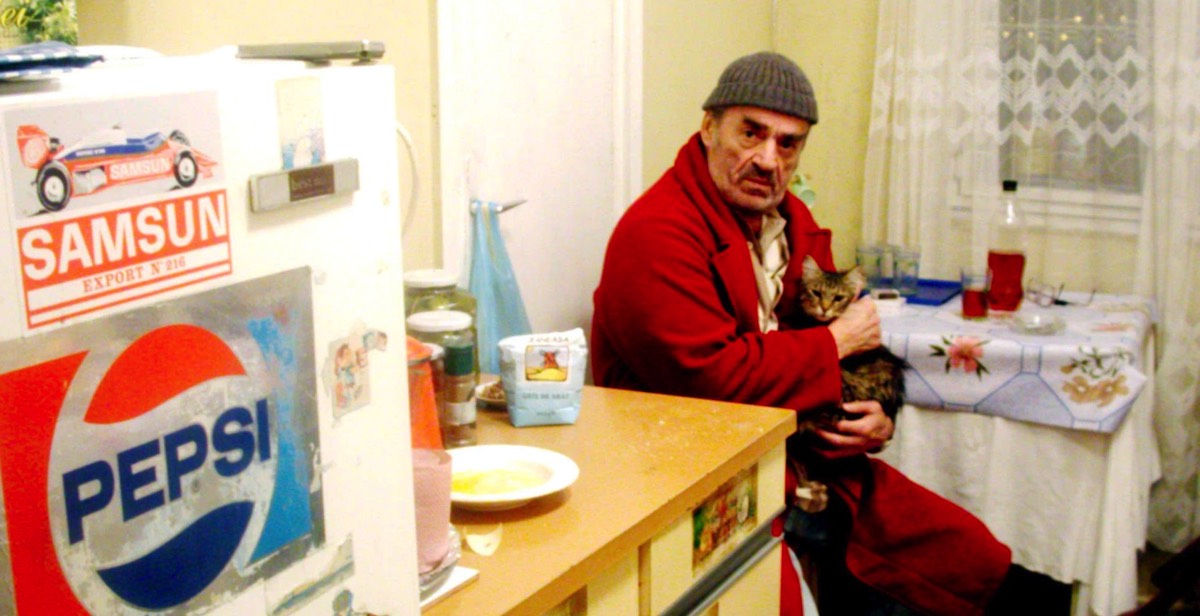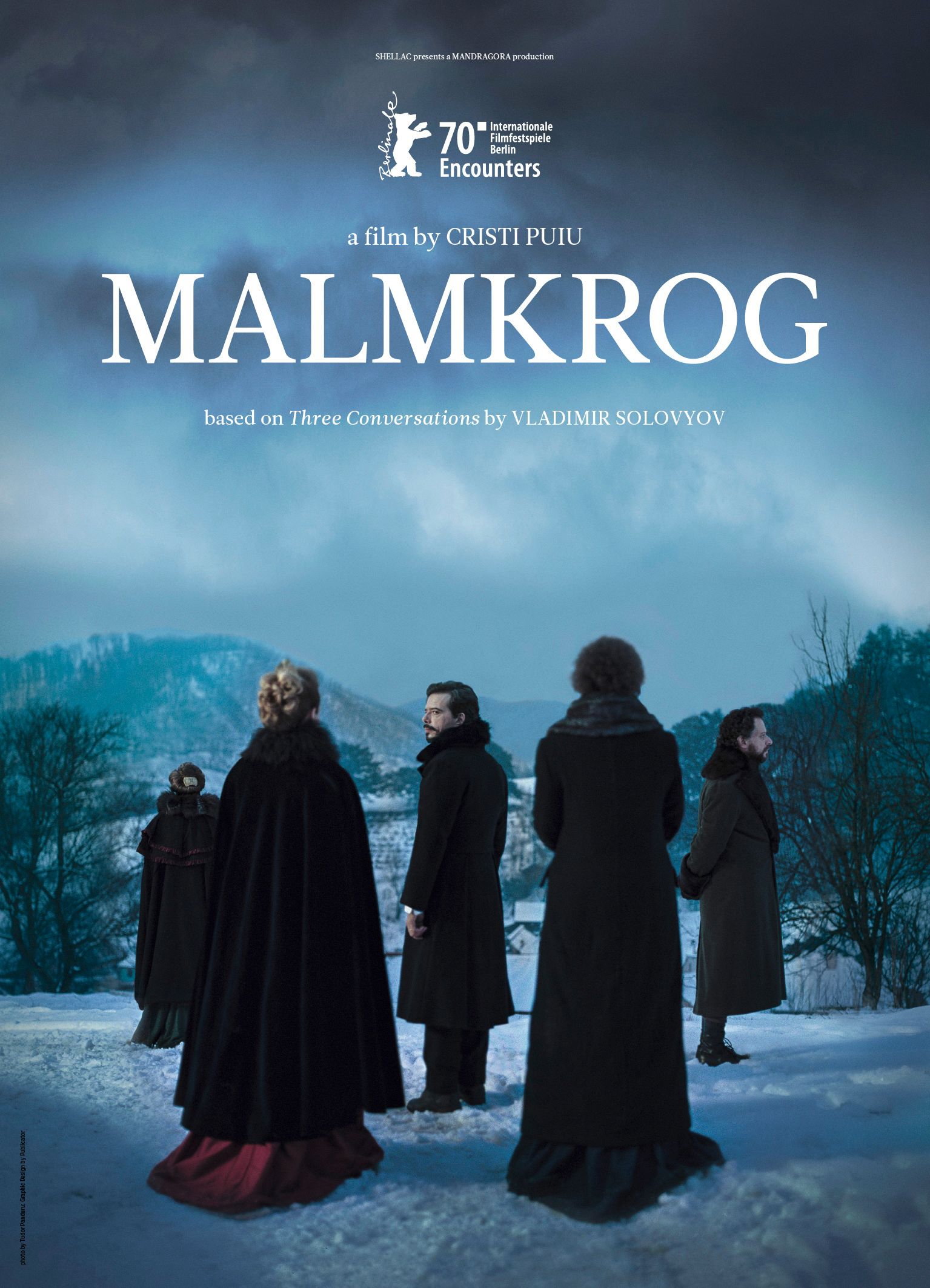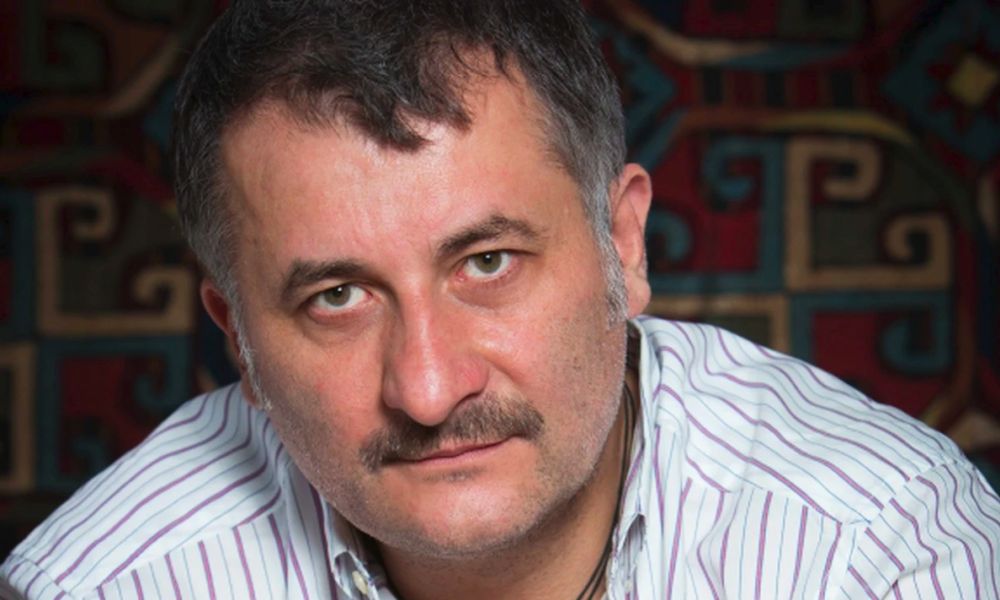"Cristi Puiu is one of the towering figures of the Romanian New Wave. Alongside directors such as Corneliu Porumboiu and Cristian Mungiu, Puiu’s Cannes-feted work epitomises the movement’s combination of art film technique with sardonically observed social realism… Beginning his career in painting, Puiu turned to filmmaking after being exposed to the cinema of John Cassavetes and the documentaries of Frederick Wiseman. From the outset, his work is pervaded by this influence of Direct Cinema and documentary." - Melbourne Cinémathèque
Cristi Puiu
Key Production Countries: Romania, France
Key Genres: Drama, Psychological Drama, Black Comedy, Medical Drama, Family & Personal Relationships, Culture & Society
Key Collaborators: Anca Puiu (Producer), Cristina Barbu (Production Designer), Luminata Gheorghiu (Leading Actress), Bobby Paunescu (Producer), Dana Dogaru (Leading Character Actress), Clara Voda (Leading Character Actress), Judith State (Leading Character Actress), Mimi Branescu (Character Actor)
Key Genres: Drama, Psychological Drama, Black Comedy, Medical Drama, Family & Personal Relationships, Culture & Society
Key Collaborators: Anca Puiu (Producer), Cristina Barbu (Production Designer), Luminata Gheorghiu (Leading Actress), Bobby Paunescu (Producer), Dana Dogaru (Leading Character Actress), Clara Voda (Leading Character Actress), Judith State (Leading Character Actress), Mimi Branescu (Character Actor)
"Despite the widespread belief that his early films had been instrumental for the emergence of the “New Romanian Cinema”, Cristi Puiu rejects being considered the father of the new “wave”, as well as the assumption that the new Romanian films somehow reflect the national spirit. “They are not Romanian stories, but stories from Romania,” he warned in one interview, refusing to accept that his films are nothing but an allegory of the state of the Romanian nation at the start of the new millennia." - Nebojša Jovanović (Sarajevo International Film Festival, 2013)
"Although the Romanian New Wave is marked by realism and socially aware subject matters, Puiu rejects any devotion or commitment to a form of cinema canon, and challenges the processes of inspiring empathy in an audience. To him, cinema is almost a mystical experience, a very personal one which happens to reach a select few who feel the same." - Andreea Patru (Senses of Cinema, 2017)

The Death of Mr. Lazarescu (2005)
"Cristi Puiu is considered to be a pioneer of the "Romanian New Wave" movement. In 2005, he won the Un Certain Regard section in Cannes for his film, The Death of Mister Lazarescu (2005). The film Aurora (2010) was also screened in Cannes and won the East of the West Award at the Karlovy Vary Film Festival. The drama Sieranevada (2016) was nominated for a Palme d'Or Prize at the Cannes Film Festival. Puiu often uses documentary film techniques in his feature-length films." - Ji.hlava International Documentary Film Festival (2023)
"His very emergence as one of the innovative contemporary voices in filmmaking created controversies in his native country precisely for its too-realistic depiction of life on the outskirts of a metropolis… Most notoriously, Mr. Lazarescu was initially denied state funding only to be celebrated once it had won the Un Certain Regard award, the first important prize for a Romanian feature since 1965. Its twenty-four-hour plot, long takes, handheld camera, dark humor, naturalistic acting, and focus on the drama of an ordinary individual—all attributes of cinematic realism—would become a trademark of the New Romanian Cinema" - Monica Filimon (Contemporary Film Directors: Cristi Puiu, 2017)
"As a student in the Painting Department of the École Supérieure d’Arts Visuels in Geneva, he shot several short films and documentaries in the 1990’s. After he returned to Romania, he continued to paint and co‐wrote screenplays with Razvan Radulescu and Lucian Pintilie. In 2001, he made his first feature film, Stuff and Dough, a road movie filmed with a hand‐held camera in a near documentary style." - The Cinema Guild (pdf)
"Cinema is a laboratory. Cinema is science. Scientists work very much like filmmakers. Filmmakers use cinema as a tool, like scientist’s instrument. They ask questions about human existence, human nature, and the world. The camera is an anthropological instrument. If it’s not that, then it doesn’t interest me." - Cristi Puiu (East European Film Bulletin, 2011)
"Cinema is not about advertising or propaganda. Cinema is not about beauty or beautiful images. Cinema is about truth… Usually you are going to have to make a series of compromises to get a film to the end. But there are some limits to these compromises – and one of these limits is not to alter your vision or what you want to say. Because then you are just a traitor." - Cristi Puiu, 2019
Selected Filmography
{{row.titlelong}}
Cristi Puiu / Favourite Films
About Endlessness (2019) Roy Andersson, Diary (1983) David Perlov, The 400 Blows (1959) François Truffaut, Grass (1925) Merian C. Cooper & Ernest B. Schoedsack, Mamma Roma (1962) Pier Paolo Pasolini, The Mother and the Whore (1973) Jean Eustache, Mouchette (1967) Robert Bresson, Through the Olive Trees (1994) Abbas Kiarostami, The Tree of Wooden Clogs (1978) Ermanno Olmi, Unfinished Piece for the Player Piano (1977) Nikita Mikhalkov, Wanda (1970) Barbara Loden, A Woman Under the Influence (1974) John Cassavetes.
Source: Sight & Sound (2022)
About Endlessness (2019) Roy Andersson, Diary (1983) David Perlov, The 400 Blows (1959) François Truffaut, Grass (1925) Merian C. Cooper & Ernest B. Schoedsack, Mamma Roma (1962) Pier Paolo Pasolini, The Mother and the Whore (1973) Jean Eustache, Mouchette (1967) Robert Bresson, Through the Olive Trees (1994) Abbas Kiarostami, The Tree of Wooden Clogs (1978) Ermanno Olmi, Unfinished Piece for the Player Piano (1977) Nikita Mikhalkov, Wanda (1970) Barbara Loden, A Woman Under the Influence (1974) John Cassavetes.
Source: Sight & Sound (2022)
Cristi Puiu / Fan Club
J. Hoberman, Dan Sallitt, Mike Leigh, James Quandt, Igor Soukmanov, Jon Wengström, Myroslav Slaboshpytskyi, Pawel Pawlikowski, Geoff Andrew, Carmen Gray, Barbara Wurm, Max Carpenter.
J. Hoberman, Dan Sallitt, Mike Leigh, James Quandt, Igor Soukmanov, Jon Wengström, Myroslav Slaboshpytskyi, Pawel Pawlikowski, Geoff Andrew, Carmen Gray, Barbara Wurm, Max Carpenter.
"Fan Club"
These film critics/filmmakers have, on multiple occasions, selected this director’s work within film ballots/lists that they have submitted.
These film critics/filmmakers have, on multiple occasions, selected this director’s work within film ballots/lists that they have submitted.


